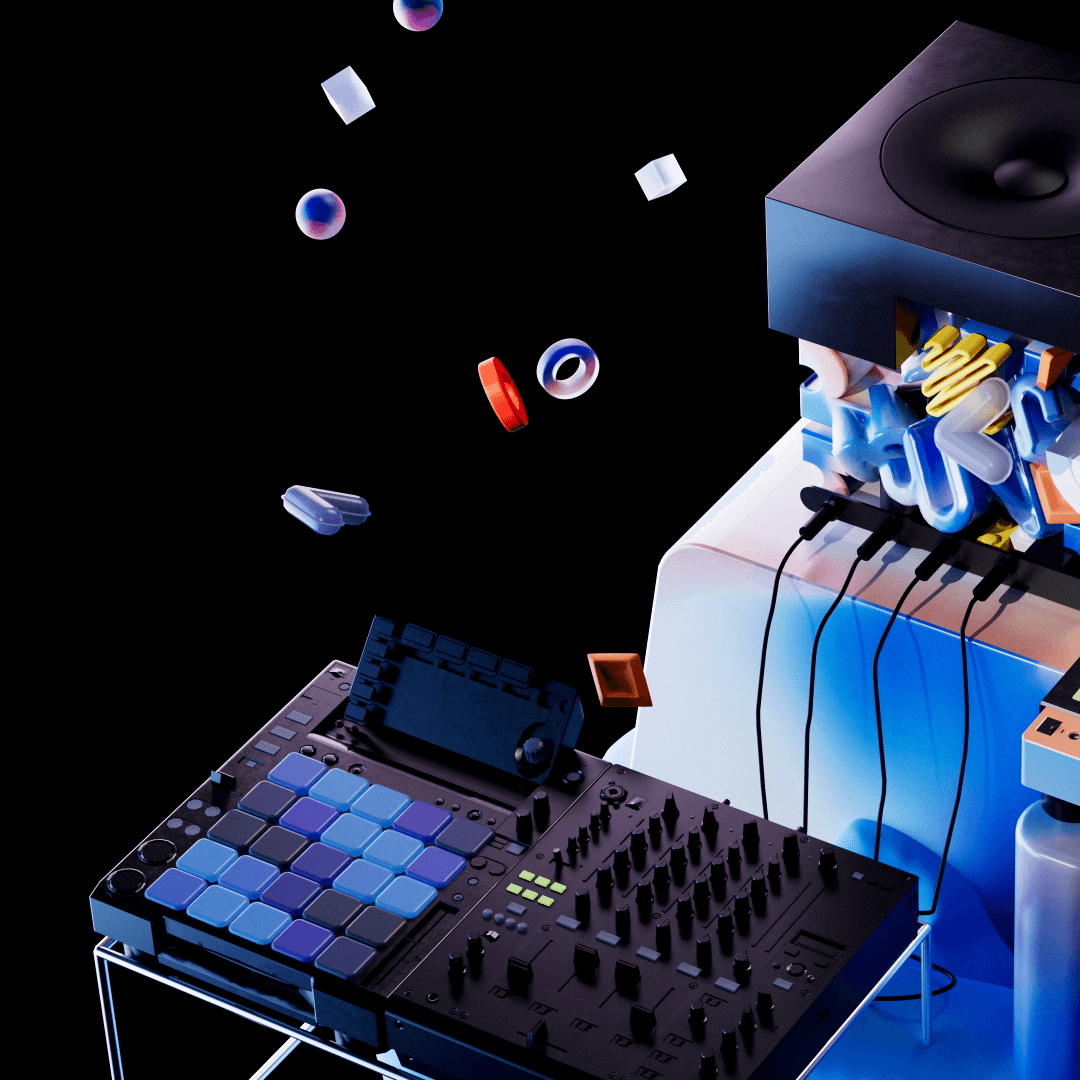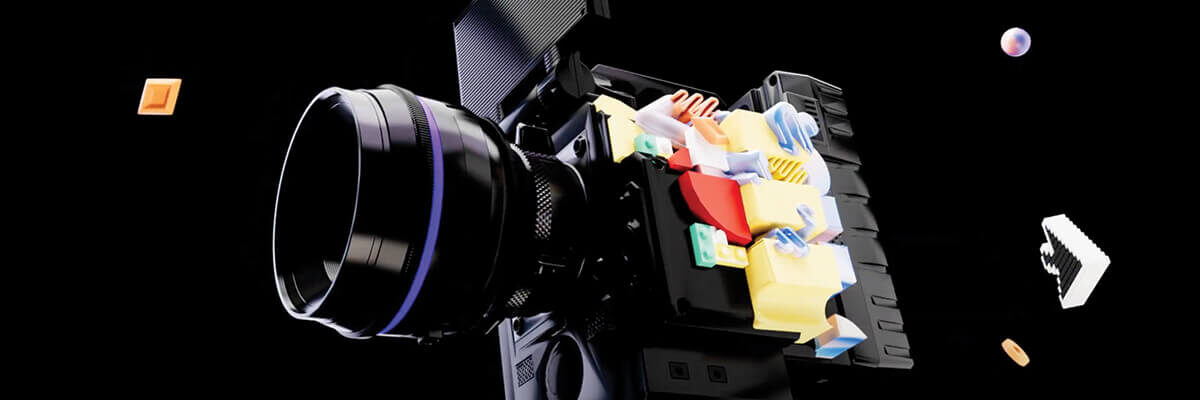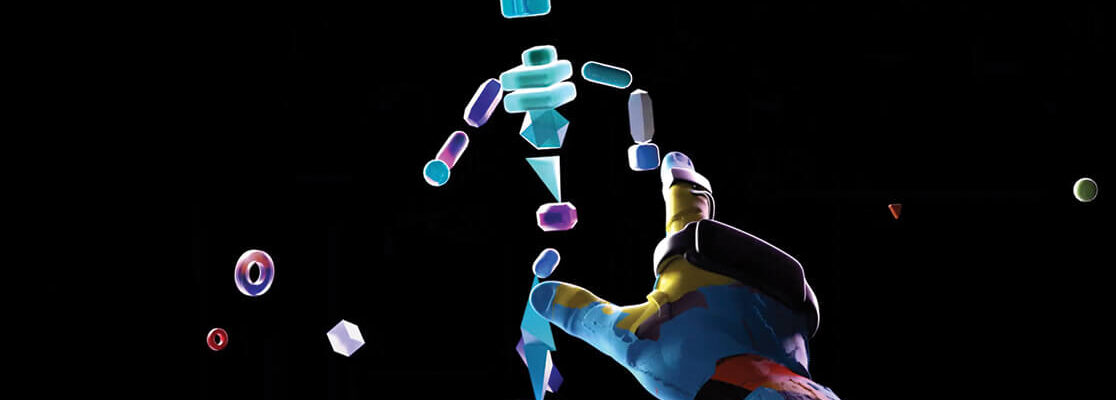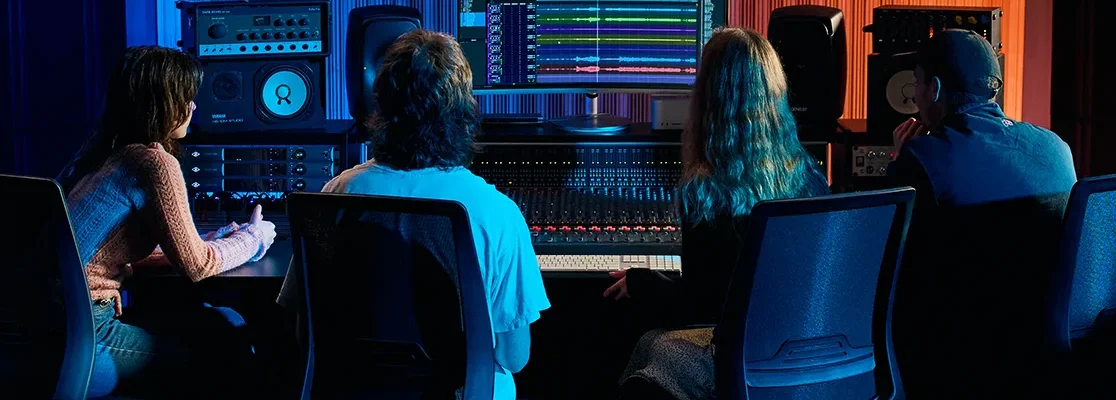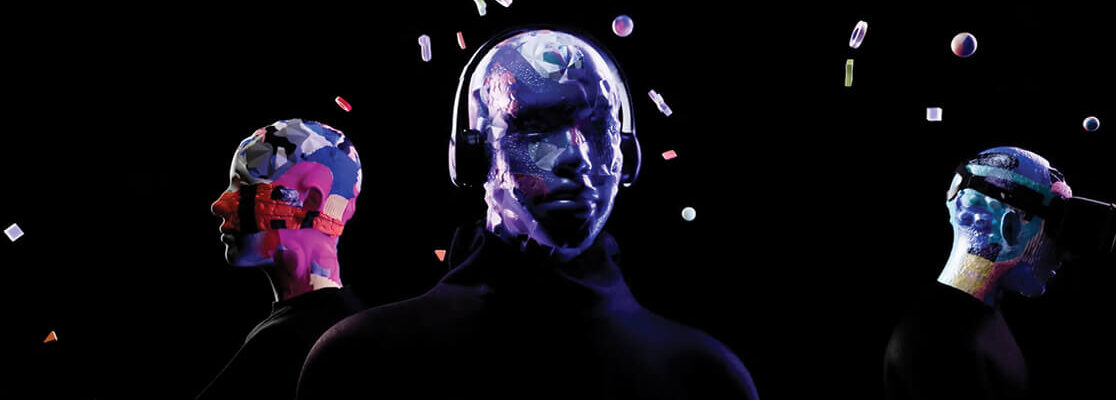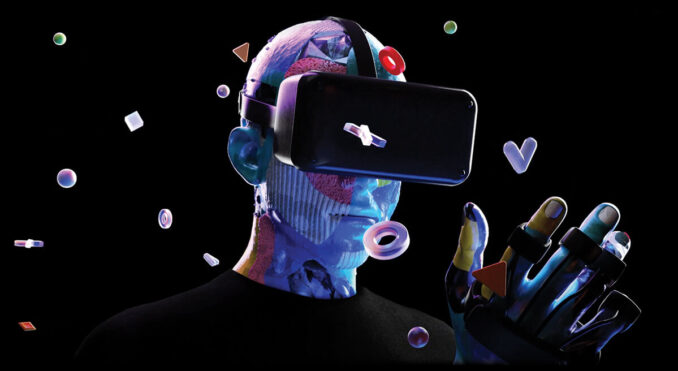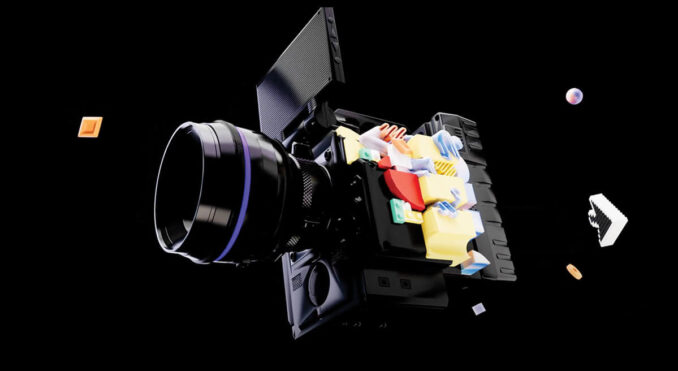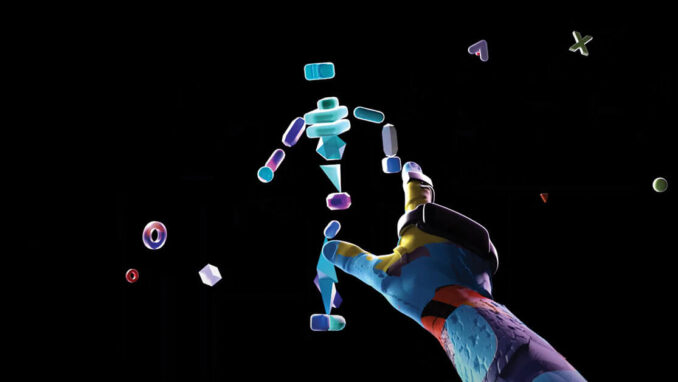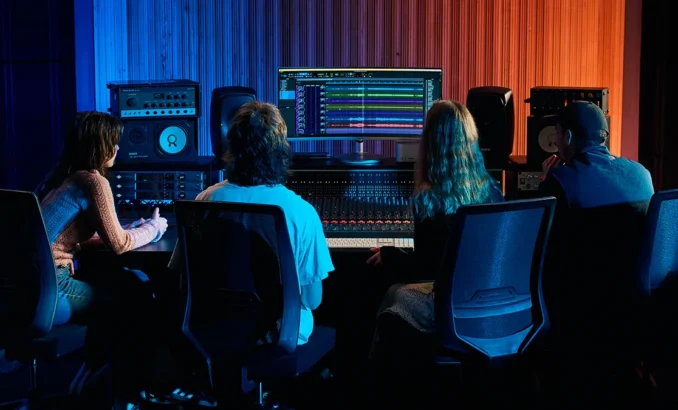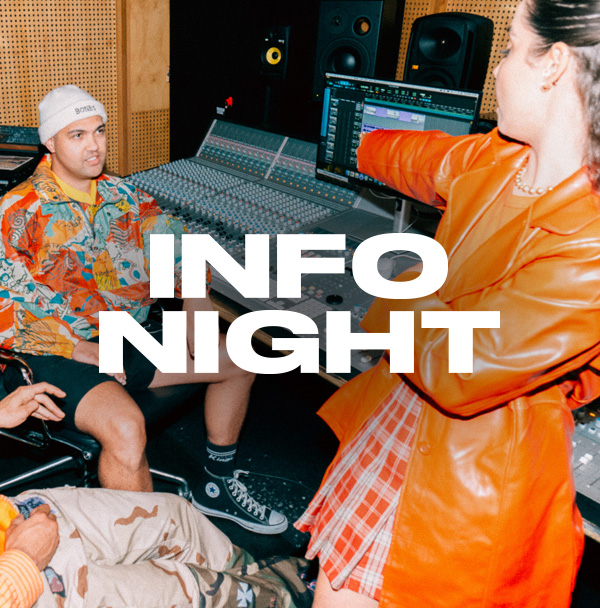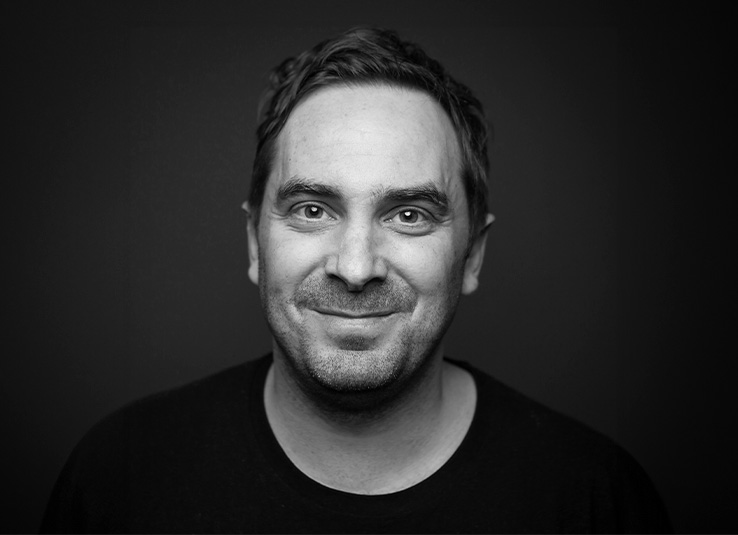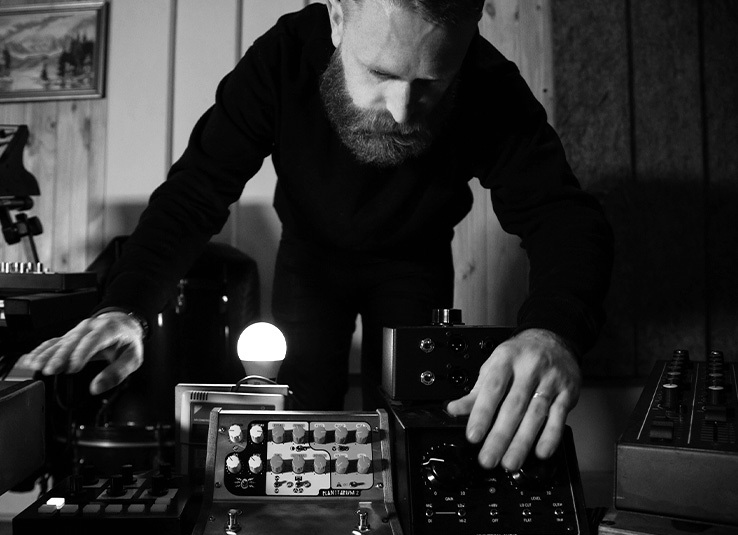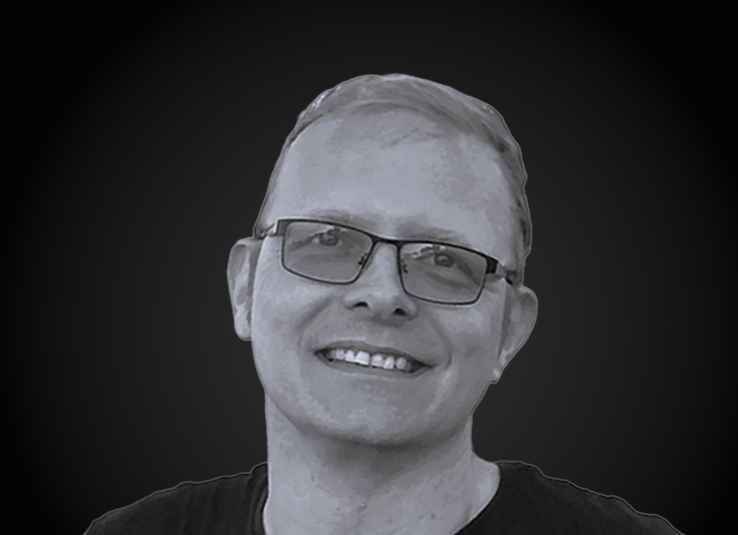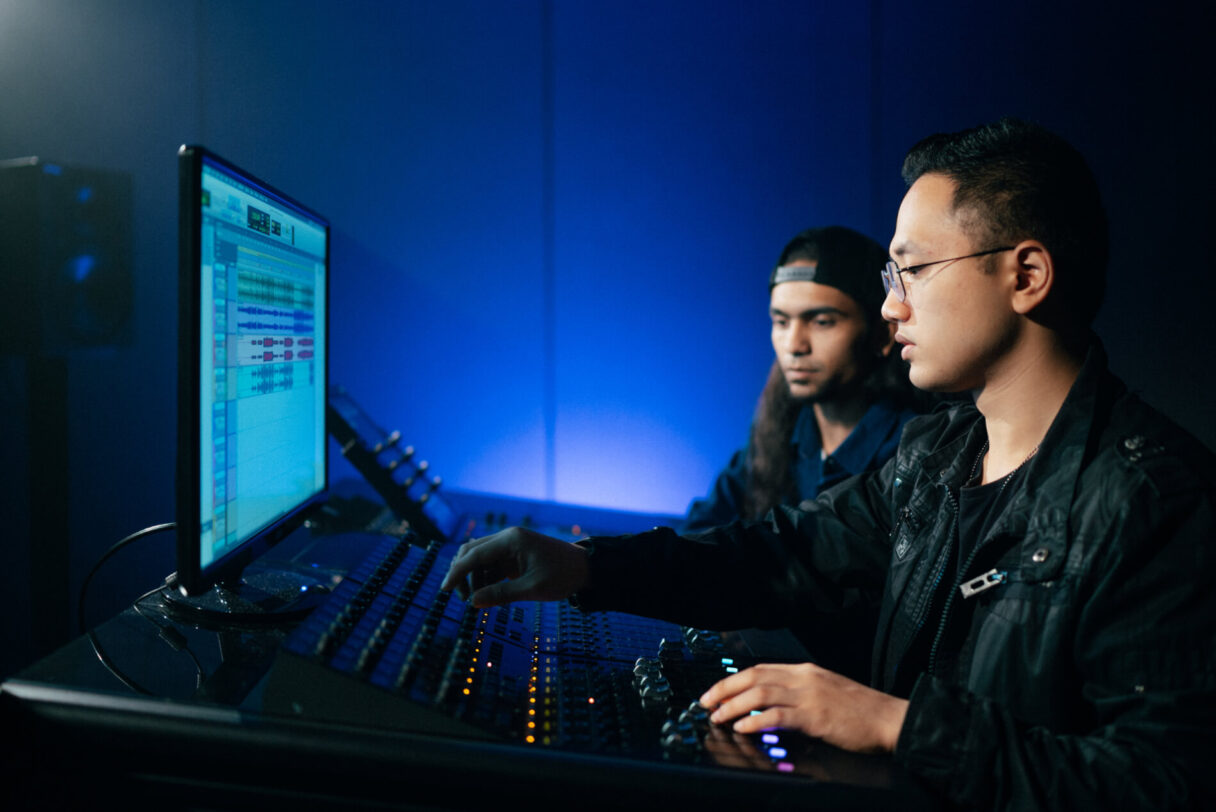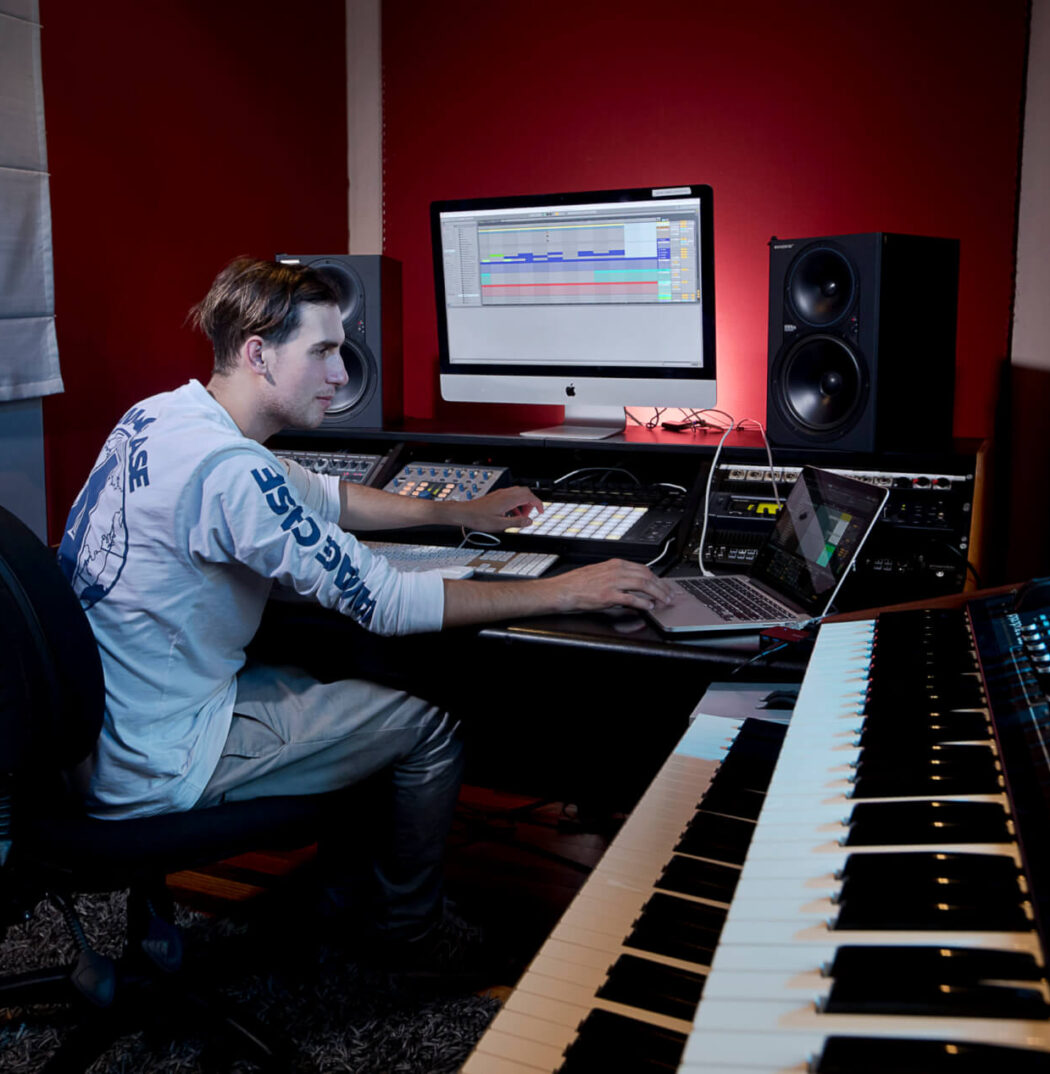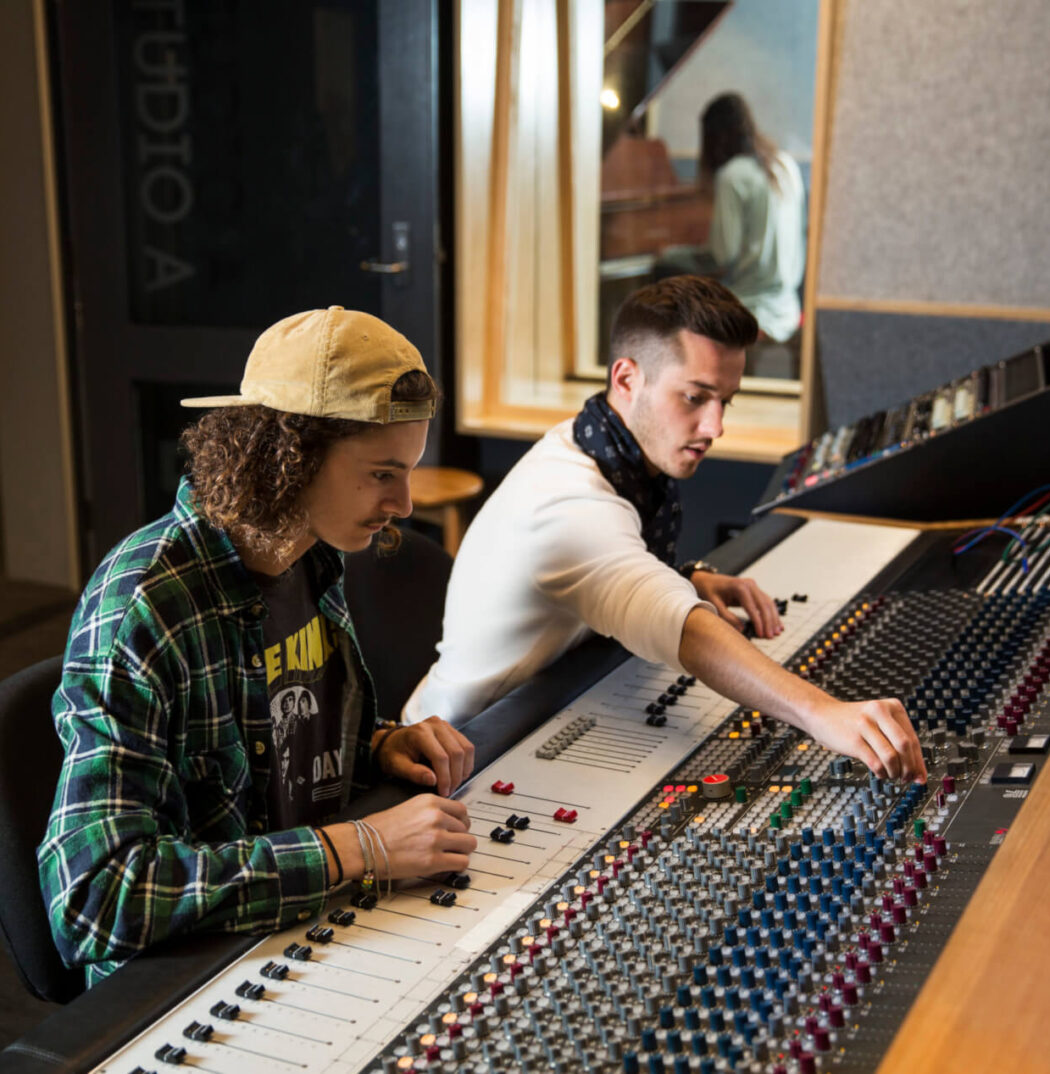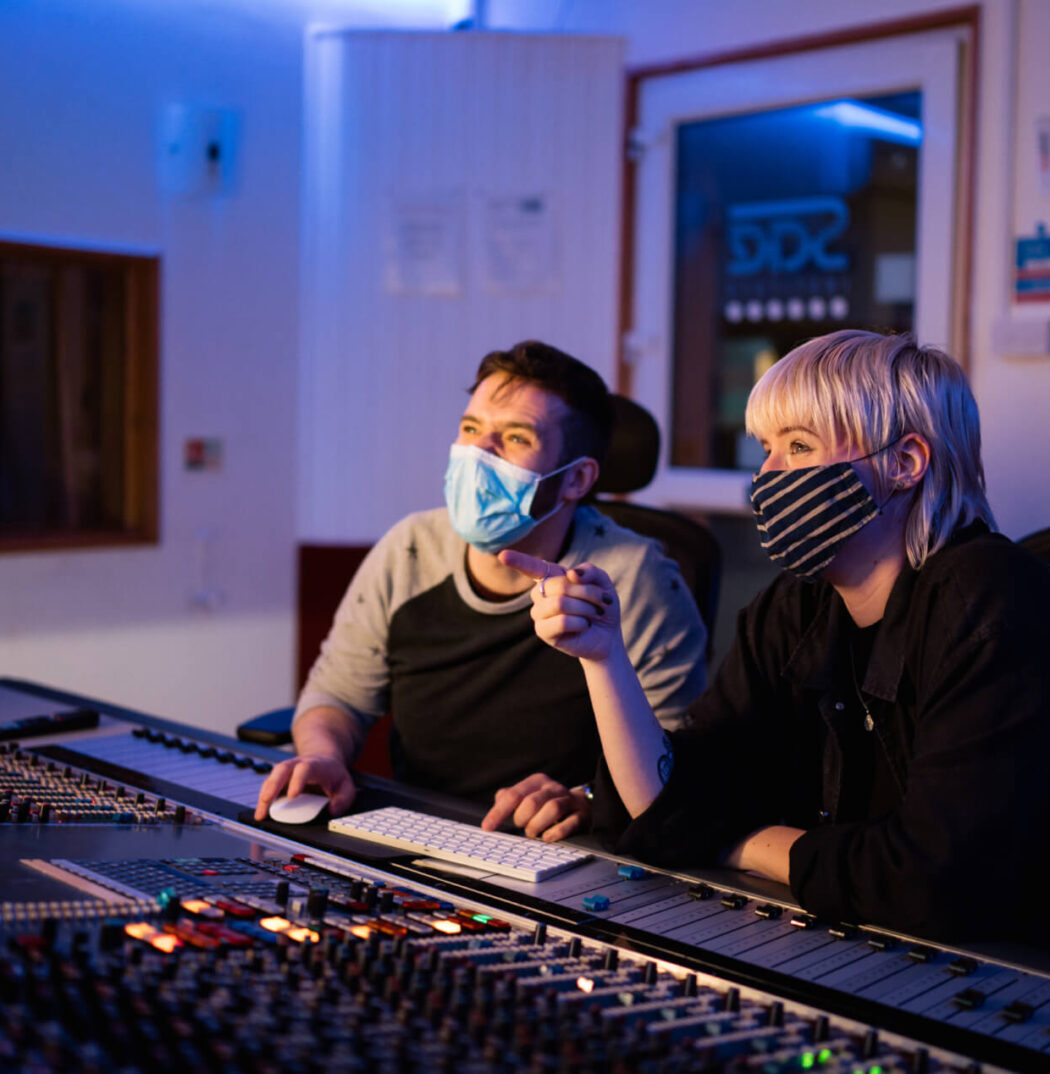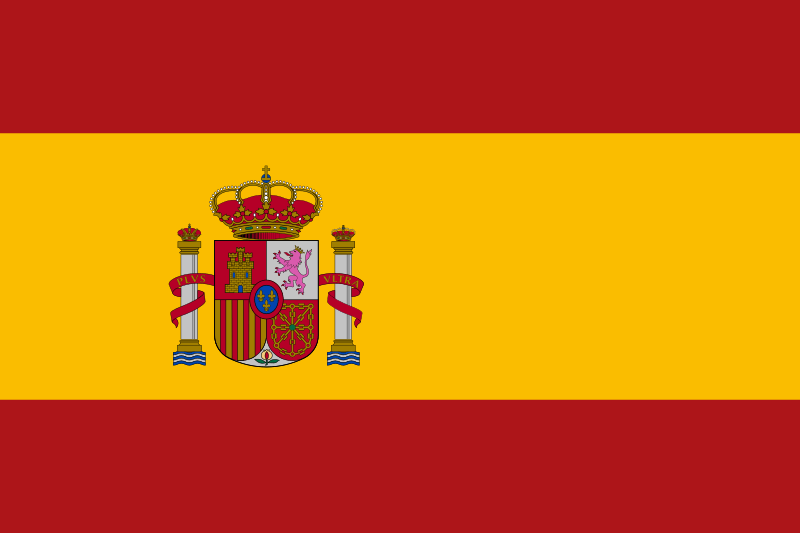Associate Degree of Audio
GET ON TRACK TO YOUR DREAM AUDIO CAREER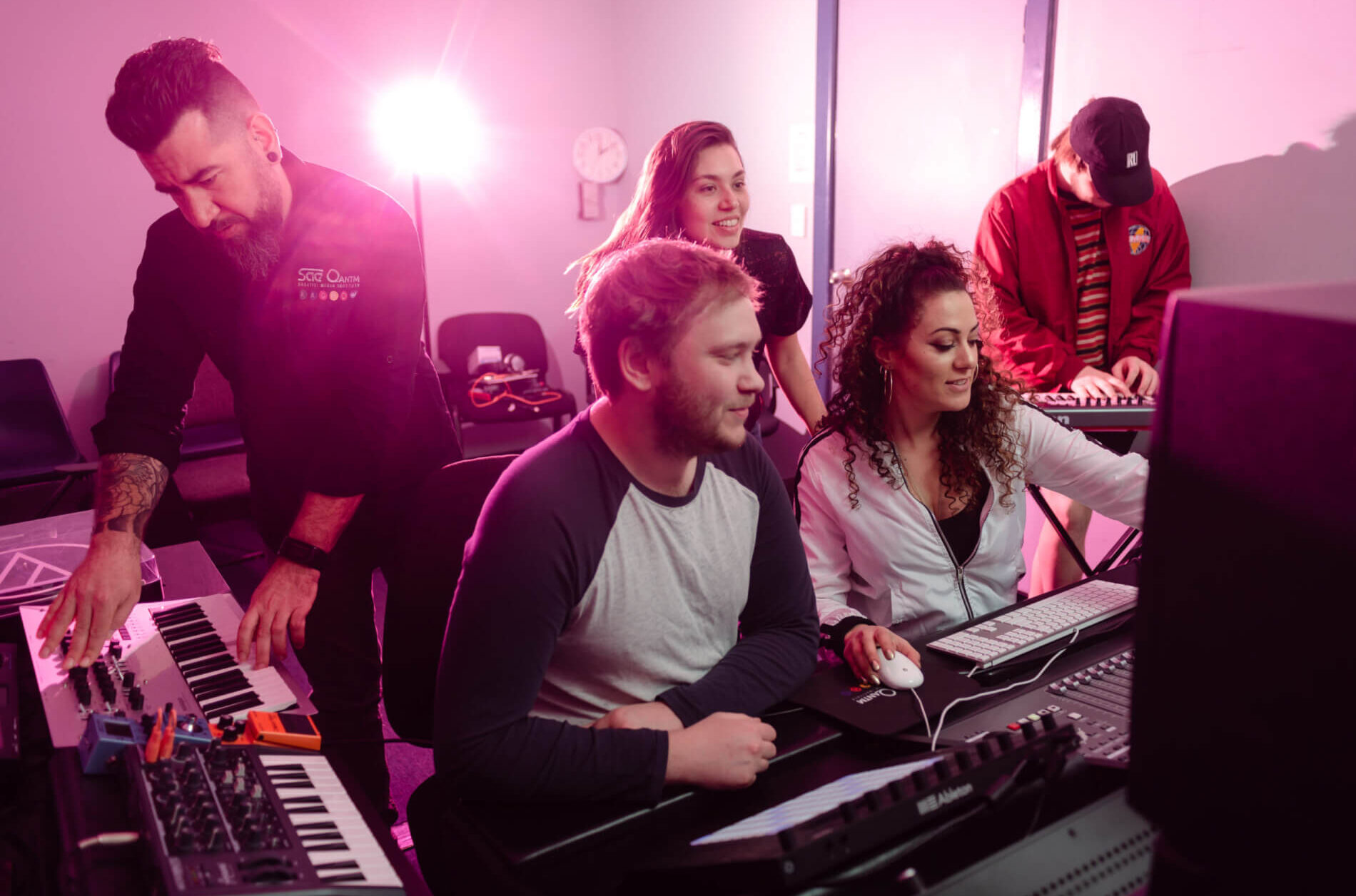
On-Campus
Ideal for students who thrive in a face-to-face environment with access to studios, peers, and in-person support.
- Includes 2 hours of weekly on-campus classes plus 1 hour of national content (online or asynchronous).
- Classes run Monday to Friday, morning, afternoon, and evening, with access to digital resources and support.
- Perfect for hands-on learning, collaboration, and real-time feedback.
Blended Delivery
Designed for those who want the best of both worlds, structured face-to-face learning with online flexibility.
- Combines 2 hours of live (on-campus or online) classes with 1 hour of national content each week.
- Balances in-person connection with the convenience of remote access.
- Supported by SAE’s online learning tools and self-directed study resources.
National Expertise
No matter how you study, you’ll learn from SAE’s national team of expert, industry-aligned faculty.
- Access top educators and specialists across Australia, wherever they’re based.
- Benefit from national masterclasses, guest lectures, and collaborative learning.
- Tap into deep industry knowledge that goes beyond your local campus.
Units x Costs ($AUD)
10 x $2,999
3 x $5,998
Annual Course Fee (Indicative)*
(based on 1.0 EFTSL**)
$23,992 AUD
Plus Student Services and Amenities Fee (SSAF)
* The Annual Course Fee (Indicative) is charged against individual units of study which may increase from time to time and does not take into account personal circumstances such as RPL, credit, repeats and some specialised electives.
** EFTSL (Equivalent Full-Time Student Load) is a measure of a full-time student’s study load for a year. A full-time study load equates to 1.0 EFTSL. Typically, a full-time study load at SAE is 8 units of study over the year, each with an EFTSL value of 0.125.
For more information view the SAE Fee Schedule or visit the Fees & Payment page.
Units x Costs ($AUD)
10 x $3,495
3 x $6,990
Annual Course Fee (Indicative)*
(based on 1.0 EFTSL**)
$27,960 AUD
Plus Student Services and Amenities Fee (SSAF)
* The Annual Course Fee (Indicative) is charged against individual units of study which may increase from time to time and does not take into account personal circumstances such as RPL, credit, repeats and some specialised electives.
** EFTSL (Equivalent Full-Time Student Load) is a measure of a full-time student’s study load for a year. A full-time study load equates to 1.0 EFTSL. Typically, a full-time study load at SAE is 8 units of study over the year, each with an EFTSL value of 0.125.
For more information view the SAE Fee Schedule or visit the Fees & Payment page.
Complete your course faster by studying units over 15 months (4 trimesters).
Complete your course faster by studying units over 15 months (4 trimesters).
Whilst still classified as a full-time study load, you will complete the units over two years (6 trimesters).
If you want to take a little longer, that’s ok too. We’ll help you work out the best study load to suit your needs.
Note: Part-time is not available for international students.
May 2026
September 2026
February 2027
May 2026
September 2026
February 2027
May 2026
September 2026
February 2027
May 2026
September 2026
February 2027
May 2026
September 2026
February 2027
Your creative career starts with SAE
Course Structure
The Associate Degree of Audio has two stages that provide foundational learning and applied skill.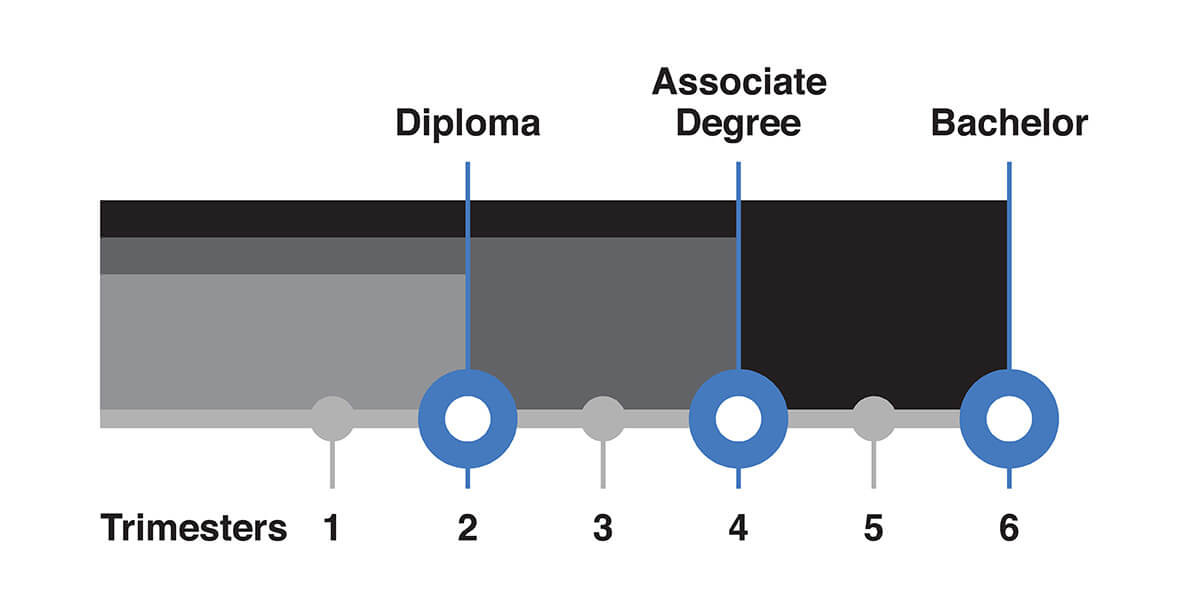
Thinking About Audio and Music introduces you to creative and scholarly thinking in your discipline. By examining leading thinkers and movements in audio and music, you will develop an understanding of key practical and professional skills that will enable you to develop a deeper understanding of the industry, scholarship, and the nature of creativity. This unit forms an essential foundation for your studies and future career by fostering your skills as an independent learner and reflective practitioner.
Establish a basic knowledge of the principles of sound, foundational acoustics, human hearing, perception of sound and the range of technical terms related to audio. You'll sonically assess a listening environment and be able to communicate your ideas using industry terminology.
Potential projects:
Improve the acoustic properties of a home studio setup. Using technology analyse the sound of different rooms.
Gain the audio recording skills required to operate studio equipment and a Digital Audio Workstation (DAW) system by undertaking simple recording and mixing projects.
You'll be able to demonstrate an understanding of session planning, studio etiquette, microphone placement, signal flow, multi-track recording and signal processing (EQ, filters and dynamics processing) and be able to edit your session in preparation for mixdown.
Potential projects: Develop a plan for a professional recording session. Analyse sound recordings and create multiple mixes using balance, pan, equalisation, automation and FX processing.
This unit explores the concepts of entrepreneurship, innovation and project design. You will develop approaches to identify promising opportunities and actionable strategies to transform them into tangible successes. Through exposure to developing new ideas, processes and ways of working - both individually and in entrepreneurial teams - you will hone skills to put creative ideas into practice and achieve real-world impact.
As Alan Kay explained, "The best way to predict the future is to create it", so let's get at it!
An introduction to the technology used in various audio systems such as recording studios, live, and audio-visual sound reinforcement systems.
Develop basic soldering and electronics fault-finding skills and investigate the connectivity and terminology of small-scale audio systems.
Potential projects: Safely set up and operate small live sound or audio-visual systems for music or spoken presentations.
Apply your acquired production skills in real-life audio, music or sound design projects, one ‘in the box’ and one in the recording studio.
You'll deliver to a brief, using production skills and researching comparable works to create well-rounded products through iterative processes.
Potential projects:
First project: Enhance an audio production using sequencing, sampling and synthesis for music composition or sound design project.
Second project: Working on a collaborative studio production, You'll apply project management skills to demonstrate effective use of time and resources, whilst documenting and reflecting on the production process, identifying areas for improvements and responding to feedback from your your classmates and facilitator.
In this unit, you will collaborate on interdisciplinary projects that blend creativity and technology across fields such as film, audio, music, gaming, design, and computer science. Through project-based learning, you'll explore how different disciplines contribute to innovative outcomes—like immersive installations or interactive experiences. The unit focuses on strengthening communication, problem-solving, and teamwork across creative and technical areas. You'll be challenged to apply your existing skills while embracing new perspectives and ways of working, developing a holistic understanding of contemporary media production and preparing you to deliver complex, boundary-pushing creative solutions.
Sound in the environment is crucial in our daily lives and in the production of nearly all media. When working with sound, we constantly desire to control our acoustic environment in the first instance to obtain uncontaminated recordings and, secondly, to clinically listen to and work with these recordings. The goal of this Unit is to guide you through and expose you to various disciplines of sound and sound recording that exist outside of the controlled environment of the studio—to lead through sonic encounters with the world around us. From Film sound and its associated location recordings, documentary recordings and acoustic ecology to recreating these environments through Foley recording, this Unit aims to expose you to practical and theoretical experience with location sound. Exploring recording devices, microphones and microphone techniques to multi-track digital audio workstations (DAWs)– this course expands through ideas and practices of location sound, exposing these components and exploring their connection to various media.
This unit will further develop your recording studio skills with hands-on experience in audio production and related areas. The first project aims to give you insight into alternative methods of marketing and promoting your skills as an audio practitioner. The second project requires you to research a concept related to audio production and develop a media asset based on your findings. Throughout the trimester you will develop and refine your professional skills, document your participation in various activities and assignments, and showcase your technical proficiency and writing aptitude. You will also further develop your DAW skills and knowledge.
The course is structured to foster your initiative and creativity, with the objective of serving each of the learning outcomes through self-designed projects. These projects will provide you with practical experience in audio production in the recording studio, and help to refine your critical thinking, research, and writing abilities.
Creatives have always contributed to real-world problem solving, whether through innovative inventions, creative calls for action, public awareness building, or art and science collaborations. In this unit you will use your interdisciplinary collaboration skills to address a real-world problem. Using different theoretical frameworks within a ‘hackathon’ style studio environment you will produce a prototype that can be presented within SAE, as well as to external stakeholders.
The unit introduces the theories and applications of user-experience design principles relevant to interactive Augmented and Virtual Reality experiences, and the practical knowledge required in the technical production and development of introductory experiences. Practical, project-based learning activities will be completed in parallel with theoretical discourse and collaborative research. Blue-sky thinking and speculative design are encouraged to allow for the conceptual development of ideas.
In this audio unit, you'll enhance critical listening and technical abilities by comparing and contrasting environments, digital audio workstations (DAWs), and workflows. You will chronologically explore the art of mixing through a variety of styles and gain insights into its contemporary role in music consumption. The course addresses environmental impact on mixes and offers optimisation strategies, allowing you to expand and refine your workflows to service a variety of musical styles and listening environments.
Learn using Industry Tools & Software








ASSOCIATE DEGREE OF AUDIO
At SAE we can offer small classes and one-on-one mentoring opportunities you may not find in a larger university. You’ll apply theoretical knowledge and best practices while accessing studios to amplify your talents on cutting-edge equipment like the Neve, or an SSL, or an Audient console. All the while you will gain proficiencies on software like Pro Tools, Logic Pro X, and Ableton Live.
Your growth and development as a creative practitioner will be assessed through the completion of industry-based projects. This will ultimately help you build up a body of work and portfolio to share with potential employers or your first client.
In preparation for an industry that commands agility and adaptability, you’ll cut your creative teeth on projects initially in partnership with your course peers. As your skills develop and you work on more dynamic projects, you’ll apply your capabilities to cross-discipline projects in games, film, music, and animation. By the end of your course, you could be collaborating with fellow students across all SAE disciplines.
Ultimately, a qualification from SAE in Audio will expand your career. As part of your course, you will be provided practical experience and work with others to help build your network. We’ll also equip you with employability skills, giving you professional strategies in communication and self-promotion.
With an Associate Degree of Audio, you’ll be ready for cutting-edge industry roles using modern creative business concepts and strategies. Career options include Games Audio Specialist, Audio Engineer, Sound Editor in film, live music, broadcast media, or games development.
Enjoy the benefits of being SAE trained – our audio students have achieved great success in the creative industries. SAE graduates are known within the industry for their high-level skills and are in demand.

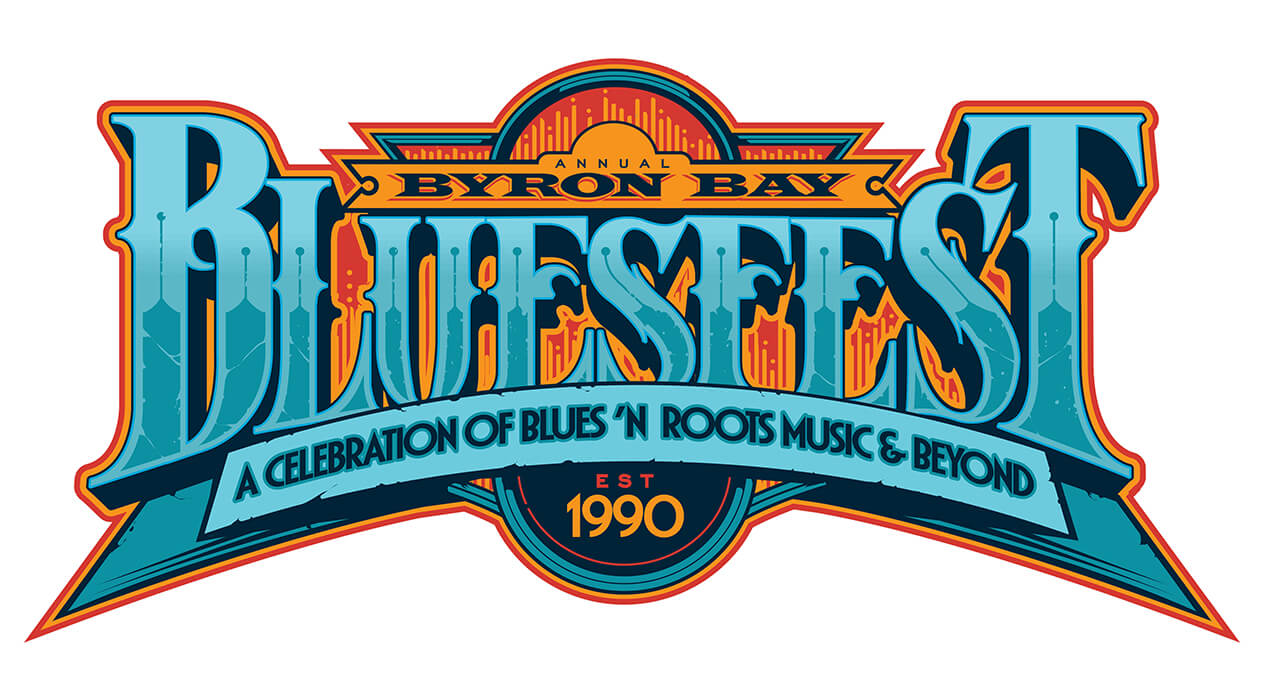

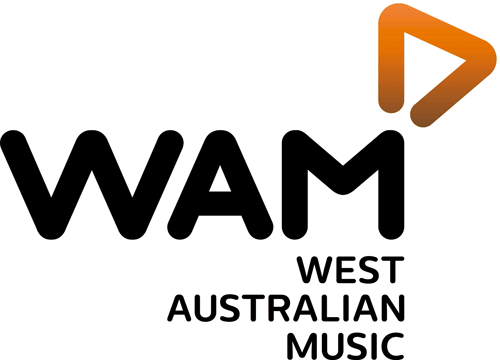

Meet your audio mentors
What our students say about SAE
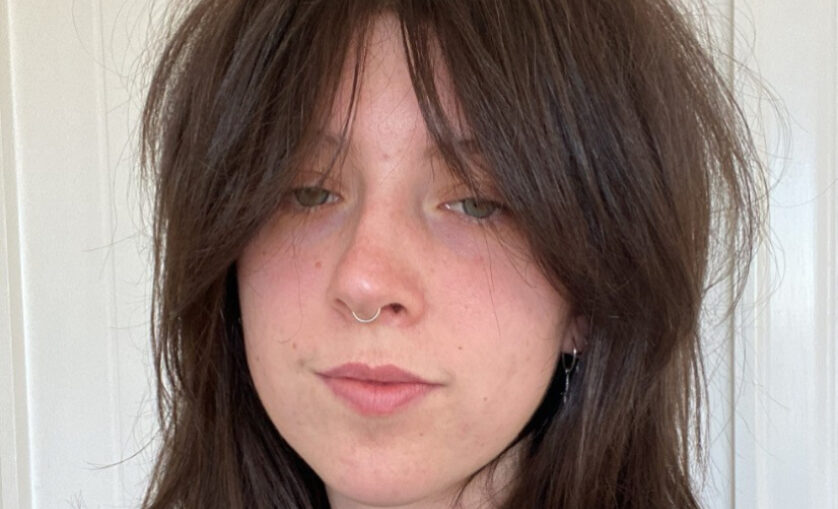
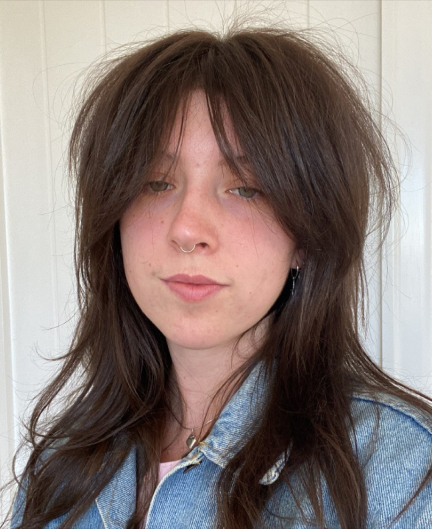
Sophie Ryder
Bachelor of Audio, graduated 2022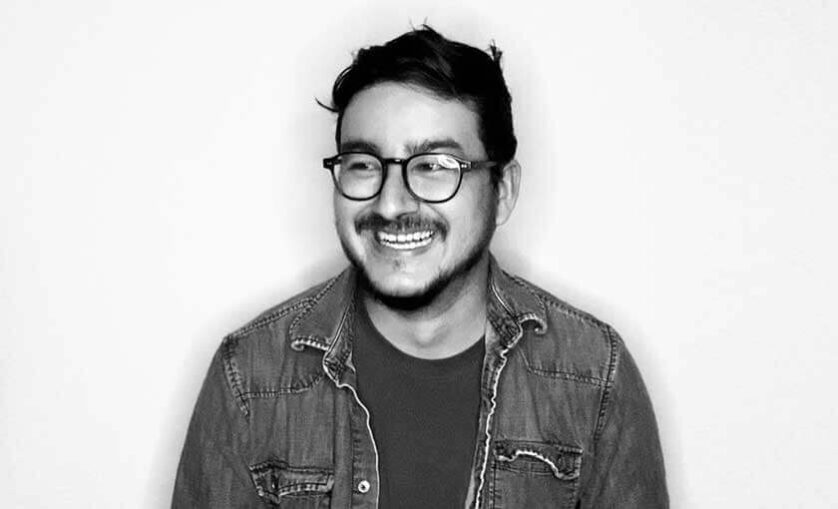
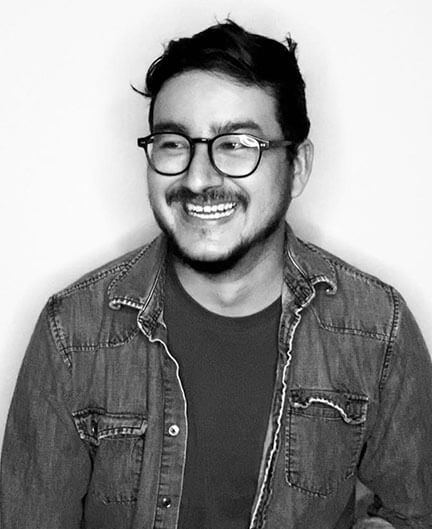
Aldo Arechar
SAE Alumni | Current Job: Hans Zimmer's Remote Control Productions company in LA
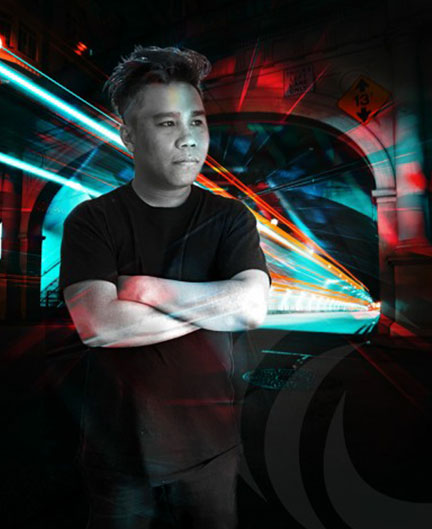
Charles Inopiquez
SAE Alumni | Current Job: Signed Music ProducerSAE Associate Degree of Audio offers:
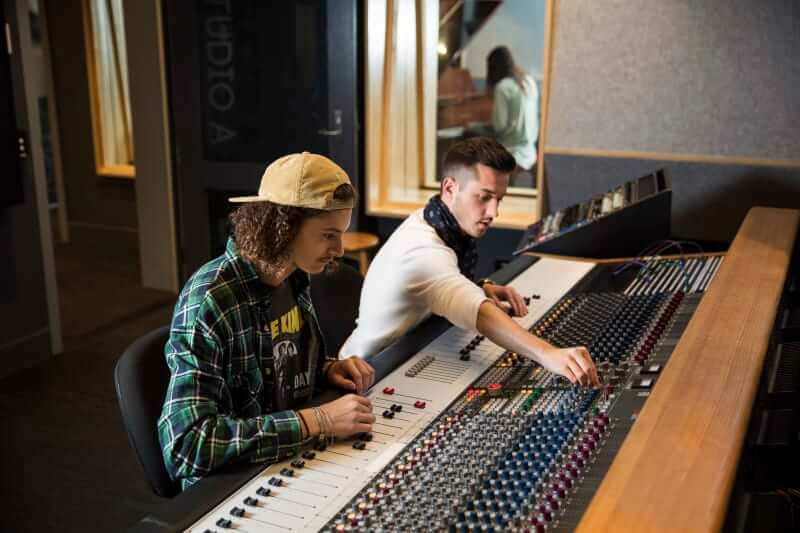
YOUR CAREER IN AUDIO BEGINS NOW
THIS COURSE COVERS:
At SAE we consider your creative potential and commitment to the Creative Industries, not just your academic history. Which is why you don’t need a minimum ATAR to study with us.
For domestic student entry requirements click here
For international student entry requirements click here
FEE‑HELP* is an Australian Government loan scheme that assists eligible fee paying students pay all or part of their tuition fees. It cannot be used for additional study costs such as accommodation or text books. The total amount of FEE‑HELP a person can use is known as the ‘FEE‑HELP limit’.
Once a person begins using FEE‑HELP, the amount of FEE‑HELP they have left to use is known as their ‘FEE‑HELP balance’.
* Terms and conditions apply. For the latest updates regarding FEE-HELP please refer to sae.edu.au/fees
You can choose to study most of our courses in a part-time capacity. An SAE course advisor will be able to give you more information about the study options for your chosen course.
Note: Part-time is not available for international students.
CREDIT AND RECOGNITION OF PRIOR LEARNING
SAE may recognise your prior learning and may grant credit towards satisfying the requirements for a higher-level program. This is applied where previous learning is considered equivalent to the content and learning outcomes prescribed for units within the program.
For full details, please refer to SAE’s policy on recognition of prior learning and credit transfers.
